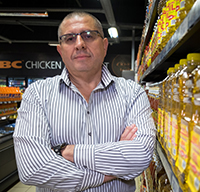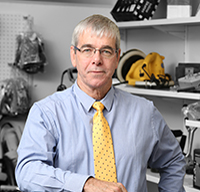As the Franchise Association of South Africa, in association with Absa, embarks on a definitive industry survey after a break of the past four gruelling years, it hopes to get a clear indication of the challenges franchisors and franchisees faced and more importantly what lies ahead for the future of this important sector.
Then… the 2019 FASA Franchise Survey showed that whilst the industry was taking strain due to the slowing economy, franchising contributed 13.9% to the country’s GDP (R734 billion) through its 813 franchise systems and its 47 923 outlets and employing, directly and indirectly, almost 500 000 people. It showed a solid performance despite tough economic conditions and was testament to the tenacity of this unique business format.
Now… there is no question that businesses across the board, big and small, including franchises were hit hard by the snowballing effect started by Covid-19 and affected by so many other socio-political and economic factors since then. By and large, the franchise sector has, through these trying times and in line with global trends, relied on the strength of the collective made up of franchisors and franchisees – all tackling problems and finding solutions together.

“FASA has, for the past 44 years, overseen the establishment and growth of this vital sector” says Fred Makgato, FASA’s CEO. “We cannot allow growth in our sector to regress or slow down as the future of South Africa relies on a vibrant sector like ours that encourages entrepreneurship, plays a role in skills transfer and in job creation. Now, more than ever, franchising needs to hold its own, take the road to recovery and continue to play the important role it does in the country’s economy.”

“Financially devastating with brands having to deal more and more with distressed units in their business model and having to work harder to maintain viable business clients open across their network. A small retail business can expect to spend at least R10 000 on fuel, a mid-sized business anywhere between R50 000 and R100 000 per month depending on the stages of load-shedding. Larger supermarket groups that have to maintain the cold chain and the integrity of perishables have budgeted up to R500 000 per store per month for this.” Tony Da Fonseca, MD of OBC Better Butchery.

“It’s incredibly stressful, it’s frustrating, and it’s causing massive anxiety. Franchise owners are business owners, and they rely on their business to feed not only their own families but the staff they employ who have their own expenses and stresses. As much as franchising is a resilient sector, and it’s a great recipe for a business, external forces such as continued power cuts (with no end in sight) create additional pressures with the potential to jeopardise a business. Although most franchisors maintain a positive attitude that we will ride this out and they are doing all they can to support their franchisees members, they continue their expansion cautiously.” Richard Mukheibir, MD of Cash Converters.
The surveys will focus on:
– The Franchisor Survey that will track the franchise trajectory in South Africa over the past four years, whether it is upholding its contribution to GDP, assessing any losses it may have incurred during the past turbulent years in terms of drop in revenue, operating/closure of stores, creation of employment and clarification of key franchise practices.
– The Franchisee Satisfaction Survey that will measure the temperature of the franchisees at the coalface of the economy and is critical to the health of small businesses within the economy. This includes an analysis of how franchisees coped in the difficult trading environment and whether they are getting the necessary support from their franchisors.
“Both these surveys are important, says Margaret Constantaras of Research EQ, “not only within the context of where franchising sits in its contribution to GDP, but an analysis of how COVID-19 and the lockdown regulations – and other economic and political events impacted the sector. As franchising operates in the entrepreneurial space offering business opportunities, it is important to franchising and FASA’s long-term growth strategy.”
According to James Noble, Absa Head: Wholesale, Retail & Franchise Business, who has been involved in the franchise sector and FASA for over twenty years, playing a part in tracking franchising’s growth by sponsoring the surveys is crucial for the future of this vital sector. “Franchising is in the national interest as it is a business model that makes a meaningful contribution towards solving one of South Africa’s most pressing problems – job creation. By sponsoring and facilitating this crucial survey, we will be in a better position to understand the market dynamics and the environment in which our clients operate, identify the challenges that franchisors and franchisees face, offer innovative solutions and deliver competitive products that will meet their future needs and support their and the country’s growth objectives.”
“FASA’s success on the world stage and as a long-time member of the World Franchise Council makes it all the more significant that we keep tabs on the growth of the franchise system within South Africa as it is the most significant franchise market in Africa” says Maria D’Amico, Chair of the Franchise Association. “We hope the surveys will help identify growth areas in the many sectors of business that can be franchised – from mentoring fledgling township entrepreneurs to become established and ethical operators to encouraging large corporate brands to consider converting their company stores to franchised stores as a more economical and profitable option and encouraging other operations to consider going the franchise route if their business system is capable of being franchised. But we need government to also play their part and commit to facilitating the business environment, making sure that business is able to operate effectively and efficiently.”
FASA’s Franchise Surveys will be conducted from May to July this year with franchisors and franchisees across the fourteen different business sectors participating in one-on-one and online interviews. The results of the surveys will form part of FASA’s event calendar for the second half of 2023 – which includes a Franchise Expo in August and the FASA Conference in October. Research EQ invites all franchisors and franchisees, whether FASA members or not, to contact them if they would like to participate in the survey. Email margaret@researcheq.co.za if for more information.




